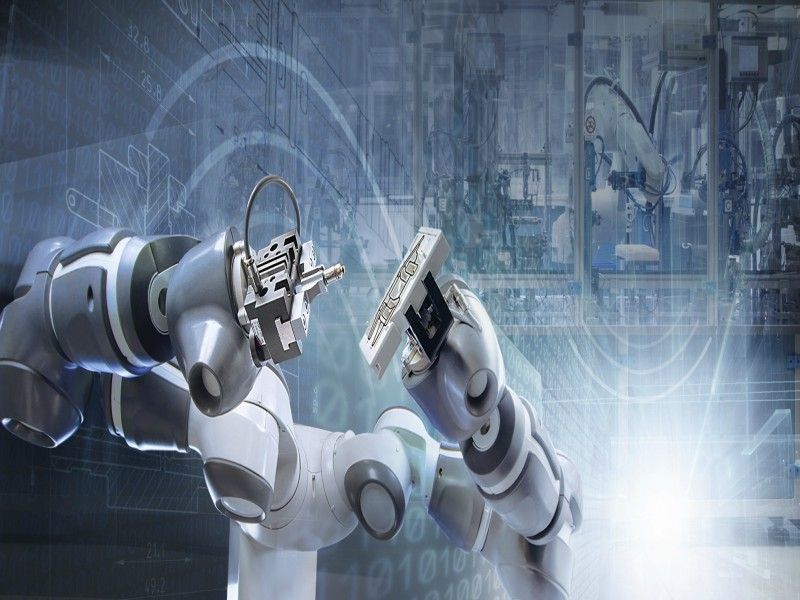What barriers do innovative manufacturers face?

The UK manufacturing industry is facing many new challenges and opportunities in light of changing market dynamics. Innovation represents the most important driver for business growth and competitive advantage, yet manufacturers routinely face challenges around how to successfully manage the process.
Since the first Industrial Revolution almost - 250 years ago, manufacturing businesses have faced constant disruption including geo-political turmoil, economic decline, technological advancements and continuous changes in customer needs.
The UK’s manufacturers have continuously proved to have a strong pedigree of adapting to change. History has repeatedly shown that the key to survival lies in embracing disruption and using technology to build flexibility and agility into businesses, but can this strategy still work in the UK’s manufacturing industry today?
We spoke with Tom Drew, Redline’s Manufacturing and Operations Consultant:
“The UK business landscape is a wasteland of organisations that didn’t evolve fast enough for their end consumer”, says Tom. “How did these businesses end up missing the mark? By being too focused on business as usual, they entirely missed the shift in demand caused by changing technology and the importance of addressing the future customer.
One of the biggest difficulties many manufacturing businesses face is understanding, interpreting and reacting to rapid shifts in market demands. With today’s prevalence of technology and data, it is far easier to assess the who, what, where, when and why surrounding how customers are ‘consuming’ products, which in turn leads to greater accuracy around forecasting future demands.
The most successful manufacturing organisations take a wholesome approach to digitalisation and Industry 4.0. Digital maturity requires the involvement of all the stakeholders in a manufacturing business including governance and leadership, people, operations, customers, data and analytics.
Yet, many organisations are still unsure how best to comprehend and articulate this deluge of information and use the resulting insights to enable quicker, more intelligent decision-making. It’s complex, laborious tasks like this that modern, cloud-based software systems are ideally placed to undertake.
At the same time, given the significant level of uncertainty presently being felt by industrial decision-makers, it is perhaps unsurprising that investment plans around ‘digital strategies’ – particularly at the transformative level – aren’t at the level you’d expect.
AI in manufacturing
Artificial intelligence (AI) promises to be the next breakthrough in productivity improvement – following the advent of lean, automation and advanced IT.
By tapping into and harnessing vast stores of previously siloed data, AI can generate unprecedented levels of operational visibility and transparency. It’s a tantalising prospect that businesses are increasingly looking to leverage.
The Manufacturer’s Annual Manufacturing Report 2018 found that the vast majority (92%) of senior UK industrial executives believe that cognitive digital technologies such as AI and machine-learning will enable their workers to work in a more intelligent, efficient and agile manner.
AI can be used to extract business insights from structured and unstructured data, it can drive new business modes and revenue, and it can enable businesses to get closer to customers and create more personalised experiences.
The rise of AI is largely mirroring that of the internet. Yes, there may be teething problems initially, but can you imagine now living without the internet? That demonstrates how technology is no longer a constraint, but an enabler. However, it’s critical you have a defined outcome, a reason for putting it in, otherwise, what’s the point.
Robotics in manufacturing
Traditionally, the UK has lagged behind some of its competitor economies in technological advances, but this is changing rapidly. The Manufacturing Report showed that 85% of UK manufacturers have implemented some form of automation in the past 12 months. The so-called Fourth Industrial Revolution will bring about a greater emphasis on 3D printing, robotics, virtual reality and data analytics. All these offer manufacturers the opportunity to produce goods faster and more efficiently.
The growth in automation brings its own challenges though, not least the potential cost of initial set-up and recruiting the right people with the right skills to manage the implementation of robots and AI platforms. For manufacturers, the message is clear. Investing in innovative technologies is vital – but to get the full benefits, this must be accompanied by considering what other organisational changes are needed whether it be culture or investments in skills, including retraining.
Redline’s Manufacturing Recruitment and Operations division specialise in the selection of both permanent, contract and interim professionals throughout the UK and Europe. Since its formation in 1982, the manufacturing jobs division has been staffed by expert consultants and industry professionals giving them a unique perception of the full product manufacturing life-cycle including all aspects of production, supply chain, manufacturing engineering and test and maintenance.
To find out more about operations, manufacturing and careers in automation or to see our latest job opportunities, please click here or alternatively contact Tom Drew on 01582 878848 or email TDrew@RedlineGroup.com

